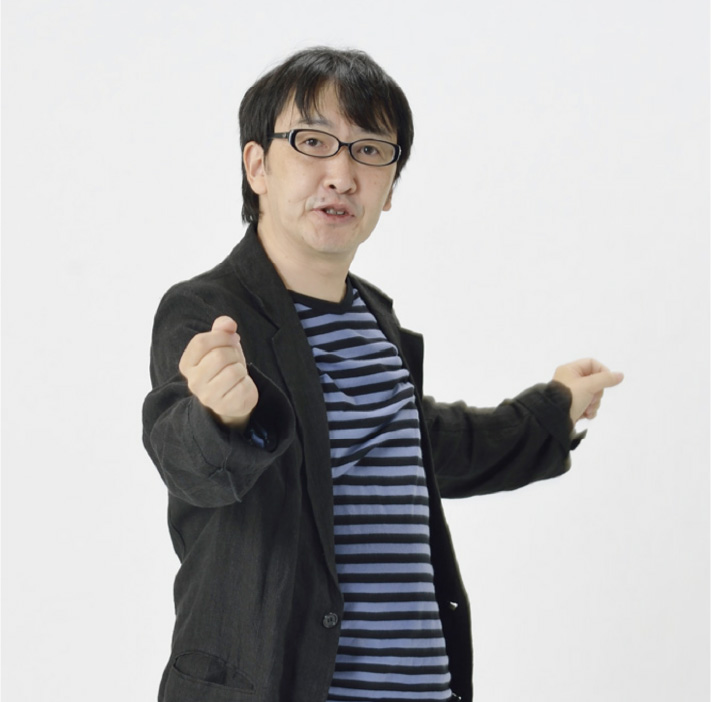01

Interview with Professor Tatsuya Sato of the College of Comprehensive Psychology
This interview was conducted on June 18, 2020.

How has COVID-19 changed our lives?
Due to the novel coronavirus pandemic,
we have had to
live under conditions of self-restraint lifestyle,
which has significantly changed our
everyday lives.
Could you tell us how you have been spending your time
recently?
Prof. Sato: My lifestyle has become much more well-ordered than the
one before the pandemic. Now, I rarely have sudden changes in my schedule and don’t need to spend
time commuting. It’s easier to control the balance among teaching, research, and administrative
work.
The workload of each job has doubled and, naturally, this has been a
struggle, but I enjoy a fulfilling life. The on-demand streaming of lessons has started, but the
way I teach my lectures hasn’t changed at all. I used to give lectures directly to the students
before, but now they are just streamed as sound and video. Having said that, to live by my motto
of “do things that others don’t,” I broadcast a 30-minute radio program once a week on
TwitCasting.
My students think that a professor who uses
TwitCasting is a bit strange but interesting. Speaking of students, I want to pay closer
attention to each individual student than ever before to provide them with the necessary
assistance and afford them with more opportunities to achieve academic growth.
Please tell me about the students’ response to the on-line classes.
Prof. Sato: I had my students write senryu (satirical
haiku) in my class the other day, by which I received some very interesting feedback. Some
students wrote about the hard times they experienced due to the self-restraint request
issued in response to the pandemic, while others wrote about their hopes for the future.
I found that they were confused by this unprecedented event, but
the contents of the senryu pleased me because they revealed that the students pondered
over various matters amid this once-in-a-lifetime situation.
In my seminar class, the attendance rate has been improving recently
despite a certain number of lazy fellows (laughs). I want to cement my seminar class as
the psychology seminar with a strong focus on social problems.

Characteristics of Japanese society revealed by false rumors and self-restraint
Have you noticed anything in particular about Japanese society by observing it during the pandemic?
Prof. Sato: By conducting several surveys and studies in
relation to the pandemic, I was strongly impressed by the bright prospects that Japanese
people have for the future.
Although we have developed a sense of distrust about the media and the government, many
of us feel that “Japan is a good country” and believe that “the situation will get better if
we endure the present circumstances”.
That’s why we were able to engage in self-restraint with no legal force. In contrast, I
was sorry to hear that aggression toward others increased.

What do you think we should do to prevent
“well-meaning
attacks” on others?
Prof. Sato: We should understand that the act of protecting your
precious ones and the act of attacking on others are like the head and tail of a coin. The acts are
not two separate acts, in fact, but are the two different aspects of one act.
Therefore, it’s important to rationalize that both you and the person you want to
attack are equally members of society. In order to prevent the same thing from happening when
the second wave comes, each of us must understand the above logic.
What about the false rumors?
Why were they spread and how can we tell
correct information from false rumors?
Prof. Sato: The cause of the spread of false rumors such as “hold
your breath and you will know whether or not you have been infected” and “drinking hot water
prevents the infection” is the state of uncertainty in which you don’t/can’t get any information
about the matter you really want to know.
A false rumor is the product of
importance multiplied by ambiguousness. When there is information that many people want desire
to obtain (which means the information is considered important), and no correct version of the
information has been provided, lies start to spread. You might give credit to one of the lies
and pass it to others for their benefit based on good intention.
The only thing we can do to stop the spread of these kinds of lie is to check the
source of the information, although it can be difficult to do so because of good intention. In
the very least, you have to confirm by whom and when the information was provided as well as
whether the provider of the information is credible enough.
A
false rumor is, in other words, “information that
is not verified even though it seems to be true”. It’s better to refrain from passing
information to others when you can’t trace its source. It’s important to think twice before you
transmit the information you receive.
Surviving in the post-coronavirus world
Could you give us some advice on how we should live our lives
in the light of the new lifestyle
that still places restrictions on direct contact between
people?
Prof. Sato: In a world with advanced virtual reality, the quality
that each person will be required to have is the “essence of self”, or more casually
“individuality”. Others will question your personality to determine whether you are worth spending
time having a conversation with.
We professors also have to work on
improving the quality of education we provide, rather than just being satisfied with just taking
our classes online. Alternatively, we, the faculty members of the Ritsumeikan University, must
ask ourselves whether we are on the side of producing new knowledge.
We transmit knowledge to the students through our lectures, but we have to produce
knowledge in the seminar classes. The knowledge we produce in the seminar classes, both in
colleges and graduate schools, should be of a quality that is worth sharing with the world.
In order to improve your essence of self, you
have to have a clear vision for the future. I often tell my students to take the “Polestar
View”. If you set one definite goal, like the polestar, you will find a way to the goal whatever
the situation will be or without being affected by the situation as long as you don’t abandon
your goal.
The more you find the means for achieving your aim,
the richer the quality of your life will become. I want my students to place a high value on
living true to themselves.
Lastly, could you tell us about the research you want to plan to focus on going forward?
Prof. Sato: I think I need to focus on researching social interactions and mental health. I want to investigate the changes in quality of life caused by the coronavirus pandemic. Fortunately, I conduct my research with the same members of past international joint research projects. Therefore, I am exploring how the activities and mindsets of people around the world, not only in Japan, have changed before and after the coronavirus pandemic.
Message
Profile
Professor Tatsuya Sato specializes in cultural psychology, qualitative psychology, and social psychology
 MORE INFO
MORE INFO
Other articles





